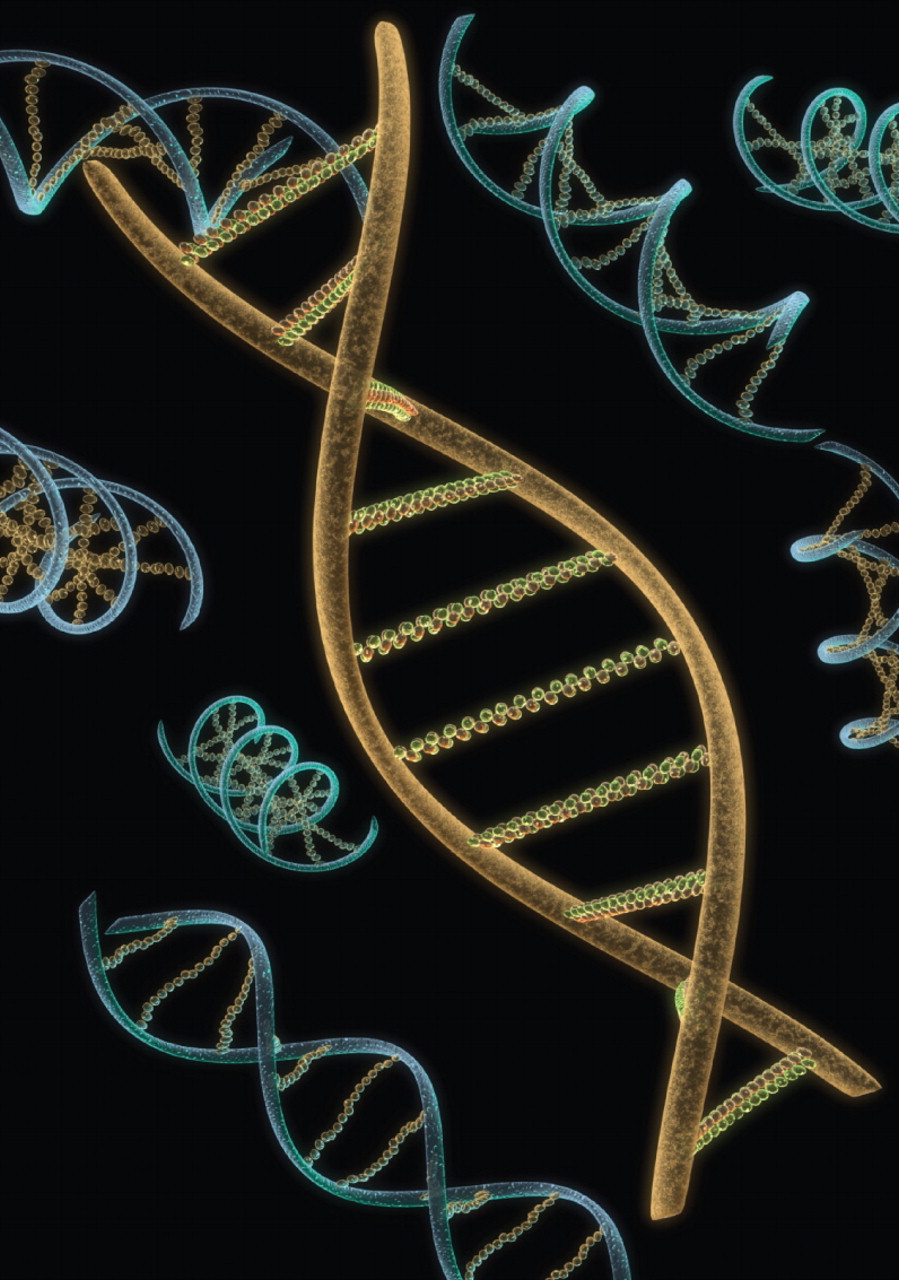Discoveries Suggest Roadmap to Schizophrenia-Linked Genes
In a massive gene hunt, three groups of international schizophrenia researchers have zeroed in on several mutations that harbor some of the secrets of schizophrenia. The resulting three papers, published online simultaneously ahead of print in Nature on July 1, confirmed some past research and revealed some surprising new insights.

Credit: iStockphoto/Christian Anthony
Researchers scanned the genomes in the DNA samples donated by tens of thousands of people, looking for different patterns of single nucleotide polymorphisms (SNPs) between schizophrenia patients and control individuals without schizophrenia. For example, one of the studies, conducted by the International Schizophrenia Consortium, pooled genomic data from three separate databases and analyzed about 8,000 schizophrenia patients and 19,000 healthy controls.
The biggest surprise was the discovery of a link between schizophrenia and the immune system. All three studies converged on the concentration of hundreds of SNPs in a region on chromosome 6 stretching from 6p21.3 to 6p22.1, a finding that was statistically significantly different between schizophrenia patients and controls. This chromosome region is the location of major histocompatibilty complex (MHC), a cluster of genes that play a crucial role in immune responses to infection and autoimmune diseases. This finding provides a genetic foundation for previous population studies that suggested schizophrenia's associations with infection and autoimmunity.
In addition to the MHC, this region on chromosome 6 also contains a cluster of histone genes. Histones are proteins involved in regulating genes being turned on and off. Mutations in these genes could disrupt normal gene regulation and potentially affect the function of many other genes.
The study conducted by the International Schizophrenia Consortium also compared the SNP patterns in schizophrenia patients and the genomes of people with other diseases. The researchers found substantial overlaps between schizophrenia and bipolar disorder that are not shared by nonpsychiatric diseases such as coronary artery disease and rheumatoid arthritis, suggesting that these genetic variations are specific to psychiatric disturbances. This discovery also supports previous research that suspected a genetic and pathological overlap between schizophrenia and bipolar disorder.
The studies also implicated a number of other genes potentially involved in an individual's susceptibility to schizophrenia, suggesting different proteins and pathways in the disease etiology, such as brain development, memory and cognition, and cell metabolism.
Because each individual carries countless SNPs throughout his or her genome, most of which are harmless, it is difficult to identify the mutations that are truly related to a particular disease. A few diseases, such as cystic fibrosis and sickle cell anemia, are caused by a single SNP. Psychiatric diseases, however, are multifactorial. Genetic research has uncovered hundreds of individual genetic variants that are associated with schizophrenia. Each of these variants appears to carry a small increase of the carrier's vulnerability to develop the disease. To find them amidst a large number of disease-related variants, therefore, requires a huge number of subjects to reach enough statistical power, so that the coincidental variants are weeded out from the truly relevant ones. As more related variants are identified, it has become clear to researchers that the cause of schizophrenia will never be pinned on one or several genes or one physiological pathway.
Although these genetic discoveries do not immediately reveal the physiological mechanisms of schizophrenia, they have drawn a rough map of where to look for the dots that will connect the mutated genes to clinical symptoms.
This finding, in turn, will help scientists design new drugs to correct dysfunctional proteins or bypass diseased pathways. Furthermore, as more genetic variants are identified, scientists can develop genetic tests to predict a person's susceptibility to the disorder and devise strategies and early interventions for preventing or ameliorating schizophrenia.
The National Institute of Mental Health contributed to the funding of all three studies. Grants from various European health ministries, the U.S. National Alliance for Research on Schizophrenia and Depression (NARSAD), the Stanley Medical Research Institute, the Wellcome Trust, and other organizations also supported the studies.
An abstract of “Common Polygenic Variation Contributes to Risk of Schizophrenia and Bipolar Disorder” is posted at<www.nature.com/nature/journal/vaop/ncurrent/abs/nature08185.html>. An abstract of “Common Variants on Chromosome 6p22.1 Are Associated With Schizophrenia” is posted at<www.nature.com/nature/journal/vaop/ncurrent/abs/nature08192.html>. An abstract of “Common Variants Conferring Risk of Schizophrenia” is posted at<www.nature.com/nature/journal/vaop/ncurrent/abs/nature08186.html>.▪



